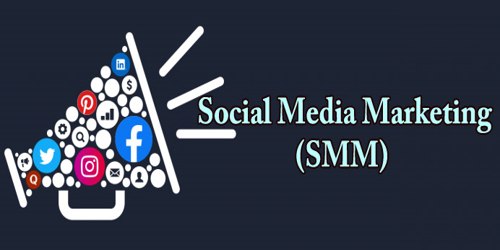Social media marketing (SMM) is a content creation that promotes business vendors or products on a social media platform like Facebook, Instagram, Twitter or LinkedIn, etc. Although the terms ‘e-marketing’ and ‘digital marketing’ are still dominant in academia, both practitioners and researchers are becoming more popular in social media marketing. Social media marketing furnishes organizations with an approach to arrive at new clients, draw in with existing clients, and advance their ideal culture, strategic, tone. SMM has become an amazingly mainstream path for organizations to interface with their crowds since every stage reports millions or even billions of clients every day.
Most social media platforms have built-in data analytics tools that allow businesses to track ad campaign progress, success, and engagement. Social media marketing has grown into its own field since its advent, complete with unique terms which are essential for understanding how it works. Companies address a variety of stakeholders through social media marketing, including current and potential customers, current and potential employees, journalists, bloggers, and therefore the general public. Many social networks enable users to provide detailed geographic, demographic, and personal information allowing marketers to tailor their messages to what is most likely to resonate with users.

When utilizing social media marketing, firms can permit clients and Internet clients to post client created content (e.g., online remarks, item audits, and so forth.), otherwise called “earned media”, instead of utilization advertiser arranged to publicize duplicate. Since Internet crowds can be preferable divided over more customary advertising channels, organizations can guarantee that they are zeroing in their assets on the crowd that they need to target. More than 80 percent of business leaders identified social media as an integral part of their business in 2014. Business retailers have seen increases in their social media marketing revenues of 133 percent.
Social media marketing (SMM) has become a necessity for all modern businesses wishing to connect with their online customers. A major strategy used in social media marketing is to develop messages and content that will be shared between individual users and their families, friends, and coworkers. Customers have come to expect some level of online presence from the majority of the companies they patronize, with over 75% of consumers reporting that they are going online and research a business before choosing whether to create a buying deal. Some examples of popular social networking websites over the years are Facebook, Instagram, Twitter, TikTok, MySpace, LinkedIn, and Snapchat.
Social media procedure includes the making of substance that is “clingy,” implying that it will stand out enough to be noticed and increment the likelihood that the individual in question will lead an ideal activity, for example, buy an item or offer the substance with others. There are over 3.8 billion individuals via online media in 2020, which implies there are 3.8 billion chances to get sellers brand out to another client. Social media raises awareness of the brand through engagement, so if they create a business page for their company and engage with other social media posts, vendors or sellers only by that simple act increase their brand awareness. Marketers create viral content which is designed to quickly spread among users.
Social media advertising ought to likewise urge clients to make and offer their own substance, for example, item surveys or remarks (known as “earned media”). Advancing and sharing substances via online media is an incredible method to improve lead age, which is the way toward pulling in and changing over outsiders into expected clients. As a communications tool, one of the main purposes of using social media in marketing is to make companies accessible to those interested in their product and make them visible to those who have no knowledge of their products. A huge driver of the popularity of social media marketing is the desire for genuine interaction of the customers.
Social media marketing involves the use of social networks, online brand-related consumer activities (COBRA), and electronic word of mouth (eWOM) to advertise successfully online. While social media marketing can bring benefits, it can also create barriers that companies may not have had to address otherwise. A regularly updated online presence goes a long way in establishing the business of vendors as a mark authority. In addition, regular customer interaction shows that they are committed to and care about their customers and their satisfaction; social media makes this easily reachable and visible.
Information Sources:
















